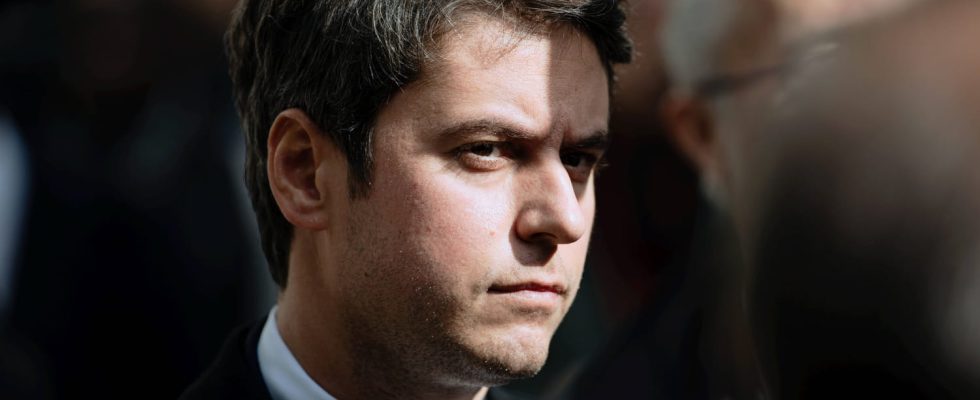Gabriel Attal is visiting Nice this Monday to inaugurate a boarding school for dropout students. However, criticism abounds among the unions, who denounce the establishment of a place of “recovery”.
Last Thursday, Gabriel Attal announced various measures to deal with violence among young people. Among them, the establishment of boarding schools for “dropout students”. He then went to Nice on April 22 for the experimental inauguration of one of them. The mayor of the town, Christian Estrosi, revealed to BFMTV that the Parc Impérial high school boarding school would accommodate “20 first-time offenders who are still in school”. During the holidays, support and civic education courses will then be offered to them.
This involves limiting the “bad company” of these young people, particularly during school holidays. “My idea is simple: before a young person really falls into delinquency, when we realize that he is starting to hang out with bad people, to hang out in the street, we will suggest to parents that their child be sent in boarding school, far from his neighborhood and those who pushed him to dive,” said Gabriel Attal.
A possible system since boarding places are currently free. According to the Ministry of National Education, the occupancy rate is 65.9% in middle school and 79.1% in high school. This formula can also be offered throughout the year. The sending of students is done with the agreement of the parents: “there is nothing imposed or repressive,” Matignon clarified. For the Prime Minister, these boarding schools are a real “opportunity” for young people, offering them “a framework” and more “chances to succeed” rather than “sinking into the spiral of delinquency and sometimes crime”.
During this visit, Gabriel Attal met the young people concerned. They were rather reluctant, insisting that they had been “forced” by their parents.
A place of “recovery” according to the unions
For some unions, this is not the right solution. According to the latter, these boarding schools could quickly become “places of recovery”. “For the last 20 years, school boarding has reappeared in political discourse, not always for the better, being the subject of ideological issues,” lamented the Snes-FSU, the first union of middle and high schools. According to Olivier Raluy, CPE category secretary of the SNES-FSU teachers’ union, with theAFPGabriel Attal today presents “the idea not as an educational boarding school but rather as a place of recovery” while the union sees in the boarding school a “place of socialization, academic success and a vector of social promotion” .
Dominique Gobetti, principal of a high school with a boarding school in Épinay-sur-Seine and representative of the National Union of Management Personnel of National Education, also states on franceinfo that this is not the right path. “It seems very complicated to us to give a student a civic culture that he does not have and to teach him to obey when he is not used to doing so in his family life,” he said. -she explains. She fears that boarding school is insufficient to change behavior: “I find it hard to imagine that a young person who is violent on the outside, who cannot obey his parents, can all of a sudden suddenly, by a miracle, because he is in a boarding school, because he is in front of an adult, a supervisor, can suddenly transform himself. She believes that people should be specifically trained for such a mission and defends that despite its internal regulations, the boarding school “is not a prison”.
